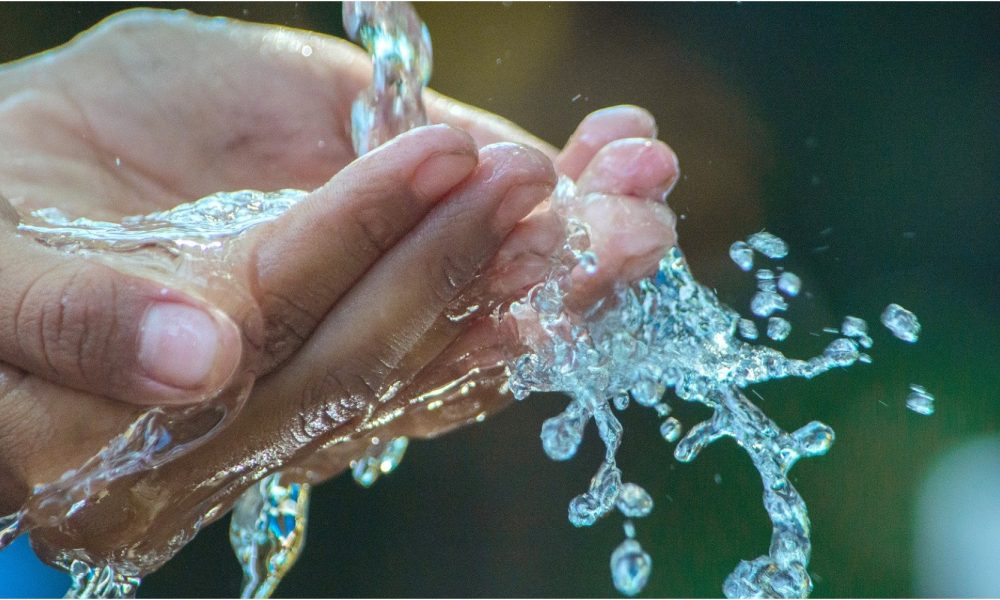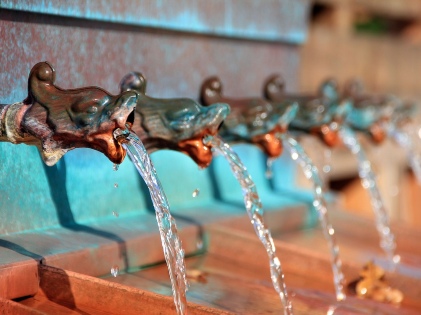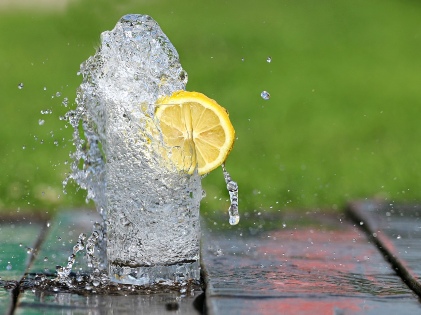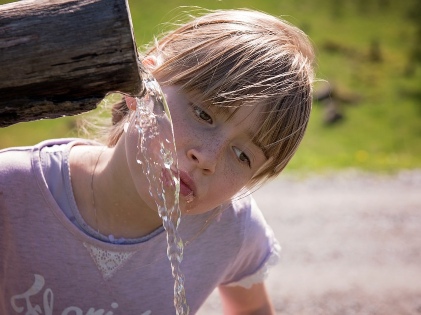
This Is How You Can Save Drinking Water At Home

Conserving water is truly the need of the hour. It is important to ensure everyone has access to clean water, even as the world is battling a shortage of this limited resource. Perhaps now it makes sense why wasting water is something we should have done long back! But it’s not too late either, only if you know how to save water. And the process is meant for everyone, unfailingly. Here are a few simple steps that won’t take a great deal of effort to conserve water in our daily lives.
Close Taps And Fix All Such Leaks In Pipes, Taps, And Toilets
 There’s no point keeping taps open when not in use. In addition to turning them off, do a regular maintenance check. It would help if you fix or even replace the old taps and pipes that have worn out. It might not seem like a lot, but did you know that you can save close to 75-80 liters of water daily. Now imagine if you combine other modes of water conservation at home, then what would be the net result?
There’s no point keeping taps open when not in use. In addition to turning them off, do a regular maintenance check. It would help if you fix or even replace the old taps and pipes that have worn out. It might not seem like a lot, but did you know that you can save close to 75-80 liters of water daily. Now imagine if you combine other modes of water conservation at home, then what would be the net result?
Reduce Your Shower Time By At Least 5 Minutes
Be it summer or the winter season- some of us love going under the shower. Especially the scorching months make it mandatory to spend long hours cooling off! On the other hand, winters and monsoons might not put a huge toll on the water reserves, but you ought to be careful. Going by certain research findings, an individual, on average, is likely to waste 17 gallons of water in every shower!
 Now try and multiply this number with the total family members, and you would get a rough idea of how much water goes to waste. So try and cut down on the long showers at home, at the earliest- at least by 5 minutes. Ideally, depending on how efficient your showerhead is, you lose about 5 gallons (or 18 liters) of water every minute. Implementing this minor change can produce noticeable results in water conservation. Also, try replacing your shower head with a ‘low-flow showerhead, which saves water by several notches.
Now try and multiply this number with the total family members, and you would get a rough idea of how much water goes to waste. So try and cut down on the long showers at home, at the earliest- at least by 5 minutes. Ideally, depending on how efficient your showerhead is, you lose about 5 gallons (or 18 liters) of water every minute. Implementing this minor change can produce noticeable results in water conservation. Also, try replacing your shower head with a ‘low-flow showerhead, which saves water by several notches.
Turn Off The Tap When Brushing Or Performing Other Work
A common part of our daily lives is letting the tap run when you possibly brush your teeth or wash your hands and face long after shaving. This is a typical habit that most people have, and they cannot cite why they resort to such silly and irresponsible behavior! So if you are serious about saving water, this is a basic idea that you must put into practice almost everywhere you go (and not just home). If you maintain the count precisely, it will put you to shame.
Even if you see someone has kept the tap running in eateries, hotels, and offices, ensure you turn that off. Surprisingly, you can save close to 20 liters of water every day by simply turning off the tap after you have brushed your teeth! If we practice this religiously in every household, water conservation should not be a distant reality. Besides, there are water-saving toilets now, which are two-fold, allowing for a lower water bill and saving water, too.
Close Taps While Washing Clothes And Utensils
 Much the same as the former, stop wasting water when washing clothes and utensils. How? Remember that most major daily household chores can lead to considerable wastage of water. So why keep the tap open when you’re washing? Follow some quick recommended tips if you wish to conserve water.
Much the same as the former, stop wasting water when washing clothes and utensils. How? Remember that most major daily household chores can lead to considerable wastage of water. So why keep the tap open when you’re washing? Follow some quick recommended tips if you wish to conserve water.
Also, a complete laundry load is a water-efficient option for machine washing. For example, washing dishes at once, instead of talking the one-by-one route, after the sink is full will help. Similarly, use less detergent for hand-washing since you won’t have to rinse out much. By turning off the tap when not needed, you can save around 50 liters of water and electricity too.
New methods are also pouring in, which ensures you save water properly. These days, water-saving toilet flush systems are also a trending bug. In much the same way, there are newer strategies and modes that you can resort to conserve water and the environment. Above all, you need to be more conscious about water wastage and try not to consume more than what you need. Consciousness is the key.
More in Business & Investments
-
`
The Sky’s the Limit: Qantas Aims for Ultra-Long-Haul Records
Long-haul flights are making a grand return, signaling the optimism among airlines that international travel is on the rebound post the...
December 2, 2023 -
`
WWE SmackDown to Make a Comeback on USA Network in 2024
In a surprising twist, WWE’s Friday night staple, “SmackDown,” is bidding farewell to Fox and heading back to its old stomping...
November 24, 2023 -
`
Why Women Face Higher Out-of-Pocket Health Expenses
In healthcare, disparities persist, and a recent report from Deloitte underscores a significant financial gap between working women and men in...
November 18, 2023 -
`
Elon Musk vs Bill Gates: The Clash of Titans
In the realm of the world’s wealthiest individuals, a simmering rivalry has been captivating public attention. It’s not a clash of...
November 7, 2023 -
`
The Power Of Disconnecting
In our digitally driven age, where smartphones, tablets, and laptops have become extensions of ourselves, disconnecting might seem daunting. However, the...
October 31, 2023 -
`
JCPenney’s Bankruptcy: The End of an Era
JCPenney filed for bankruptcy in a move echoing the struggles of many retailers in the wake of the COVID-19 pandemic. This...
October 26, 2023 -
`
Reasons Why You Need a Financial Plan
Financial planning is not just for the wealthy or those nearing retirement. It’s a crucial tool for anyone seeking financial security...
October 19, 2023 -
`
How Brad Pitt Spends His Millions All Over the World
Brad Pitt, the charismatic Hollywood superstar, has left an indelible mark on the silver screen and made an impact in the...
October 10, 2023 -
`
Gen Z’s Posh Palate: The Unexpected Rise of Caviar Culture
Amid the backdrop of a digital era buzzing with viral dances, e-sports, and niche memes, there emerges a peculiar plot twist:...
October 7, 2023















You must be logged in to post a comment Login